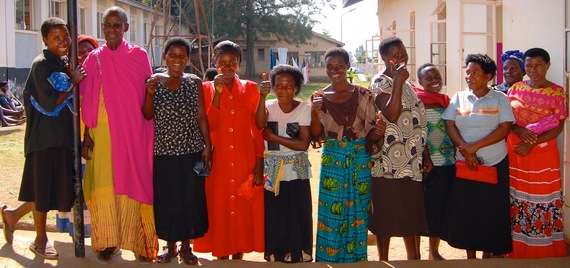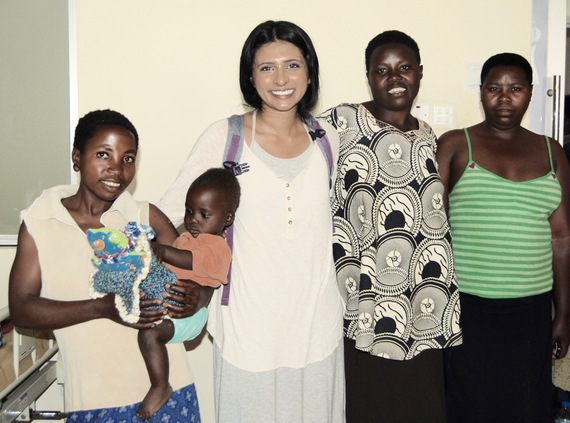
When Pooja Parameshwar went to Uganda as a volunteer with the American non-profit Medicine For Humanity (MFH), she had vaguely heard of fistula, but had no idea of its seriousness or extent until she saw the women's suffering for herself.
"What struck me most," said Parameshwar, "was how chronic and debilitating fistula can be. How it can so utterly diminish a woman's quality of life: physically, emotionally, and socially. Many women said they had lost all confidence and spousal support. They felt totally alone. This was shocking to me, to realize that there was such a widespread need for care. Yet many of us in America are completely unaware of this devastating medical problem."
Fistulas are the result of birth or obstetric injuries. In a long and difficult labor, especially with a large baby, a hole can develop between the bladder, rectum (occasionally both) and birth canal, allowing urine (and sometimes stool) to leak uncontrollably. In 80 percent of these cases, the baby dies.
It's believed two million women in the developing world are living with this condition. The smell around them can be so bad they are often abandoned by their husbands and banished from their communities. It rarely happens in the developed world, because if there's any such problem, the baby is delivered by cesarean section. But in remote African villages, women can be hours, perhaps days away from a hospital.
During their last two-week stay, a team of doctors and nurses led by MFH's medical director, Doctor Christopher Tarnay, carried out 41 fistula repairs and 22 cesarean sections. Dr. Tarnay is one of the few surgeons in the world who can repair complex fistulas.
Part of MFH's work is also to train local physicians how to surgically treat fistula and provide tools for prevention.
All the prevention strategies are about education, giving those women who are not laboring near hospitals an early awareness of a potential problem. By teaching women and their birth attendants to recognize the signs of an obstructed labor, they can get to a hospital as soon as possible for a safe delivery.
Parameshwar's role was to document the trip through interviews with the patients (via a translator), and taking photographs and videos. She was able to follow the women through their entire journey of healing, from preliminary visit, to operating room, and finally to recovery.
Parameshwar found a strong sense of community among the patients. "Every time I walked into the wards where the women stayed before and after surgery, I heard laughter, chatter, babies playing together, food being prepared and tasks being shared. It was a beautiful example of human nature and the universality of health and healing. Through the most unimaginable circumstances, these women displayed such strength and hope. One 85-year-old patient who had endured fistula for over 35 years was dancing as she left the hospital."
The next MFH trip to Mbarara is set for September 2016. Women in villages up to 125 miles away usually hear about these visits by word of mouth and radio broadcasts.
Parameshwar, 22, a senior at UCLA studying psychobiology and French, is now pursuing a career in medicine after her Ugandan experience and hopes to go back to help more women. Dr. Tarnay thinks she will be a great doctor. "She has all the human and compassion elements already."
